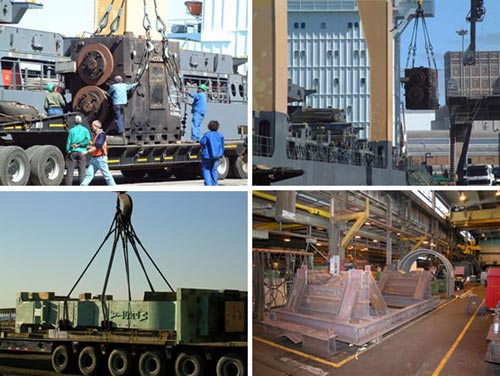Vietnam’s economy with new opportunities
Social and political stability and available resources, as well as an attractive investment environment, have helped lure foreign investment into Vietnam.
International agencies forecast that the world economy will face more difficulties in 2012 than in 2011. This year, the economy must make a turning point to change its situation and fully grasp opportunities to fulfill economic growth targets, reduce inflation and gain stability.
Economic experts say that the Eurozone and US crises cast gloom over the global economic outlook. Therefore, Vietnam will have fewer advantages in facing the international economic environment than in 2012.
The country’s inflation is controlled but still remains high. The macroeconomy is not really stable and interest rates stay high, causing difficulties for businesses.
International Monetary Fund (IMF) representative Sanjay Kalra said that Vietnam should further improve fiscal and monetary policies to keep the economy stable. The foreign currency policy should concentrate on inflation control to rebuild trust in the Vietnam Dong.
The fiscal policy can contribute to containing inflation by cutting unnecessary public spending.
Vietnam should harmoniously combine fiscal and monetary policies and approach financial policy as a management tool for supply and demand in the short term and a development tool in the long term.
While most economic experts have gloomy predictions for the world economy in the next 3-5 years, they forecast that Vietnam’s economy will still grow by 5.6-6.5 percent.
Doctor Vo Tri Thanh, Vice Director of the Central Institute for Economic Management, said that the country’s economy in 2011 saw bright spots, such as declining inflation, a narrowing trade imbalance, and surplus foreign currency reserves. Exports reached US$96.3 billion, up 33 percent over 2010, and growth hit a five-year record high.

However, according to foreign investors and international organizations, Vietnam’s achievements are not firm enough. Therefore, in the circumstance of high inflation, weak macroeconomic foundation and high risk in the banking system, it is difficult for Vietnam to choose the proper macro-policy. If the policy is too loose bankruptcies will be more likely, but if it is too tight it will increase difficulties for businesses.
Doctor Thanh added that macroeconomic stability requires flexibility in management to iron out snags for businesses. The monetary policy should be flexible in subjects, banks and credit supply. In addition the Government should have some elasticity in its approach to managing tax, resource allocation, interest rates and exchange rates.
Experts forecast that interest rates will drop from the second quarter of 2012 and that the exchange rate won’t fluctuate too much or cause shocks like in 2011.
In 2012, one of the challenges facing Vietnam and other Asian countries is the likelihood of declining credit limits from European banks due to the public debt crisis.
Currently, European banks provide around US$1,5000 billion worth of credit for Asian partners. If they reduce credit for Asian banks, Asian economies, including Vietnam, will suffer certain consequences.
However, according to Association Professor Vo Dai Luoc from the Institute of World Economics and Politics, there will be opportunities for Vietnam. The country is considered an attractive and high potential investment destination. After joining the World Trade Organisation, foreign direct investment (FDI) in Vietnam reached more than US$70 billion.
Luoc said foreign groups highly appreciated Vietnam for its socio-political stability and abundant labour pool. However, to absorb such FDI capital Vietnam must stabilise its macroeconomy, reduce inflation, and ensure national economic balance.
The business community and many international organizations have confidence in the stability and investment prospects, both medium and long term, in Vietnam. The IMF has recently released a positive forecast for Vietnam, with GDP of 6.3 percent and inflation of 8.1 percent.
The Government management policy should focus on restoring macroeconomic stability, containing inflation and resuming growth to grasp opportunities to overcome all difficulties and develop the economy.
(VOV)

